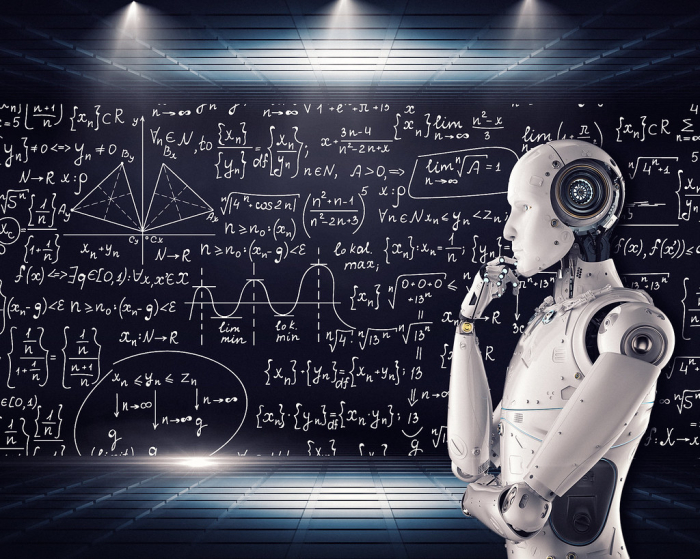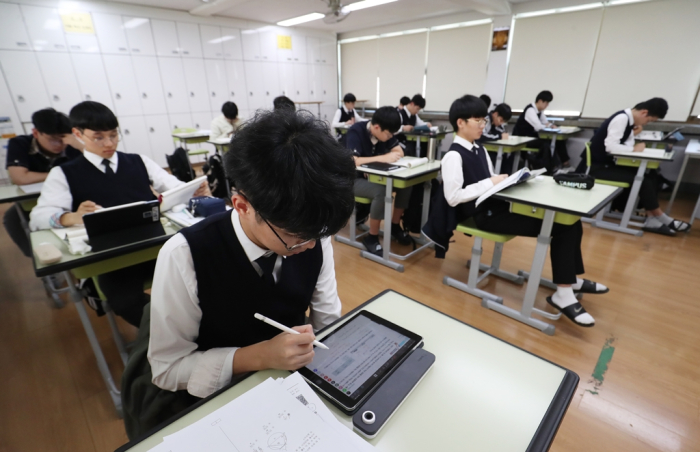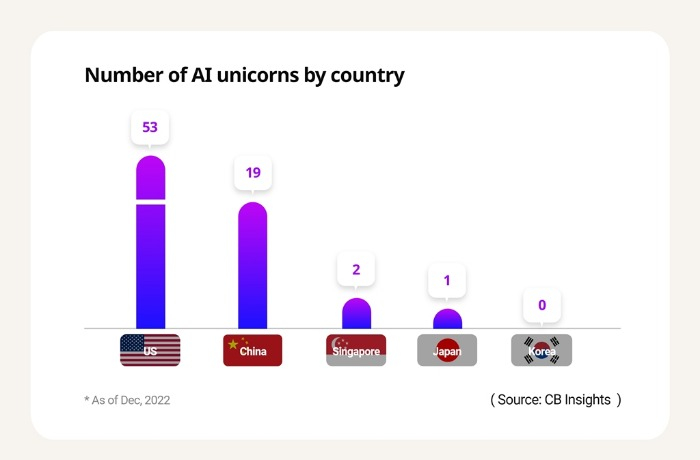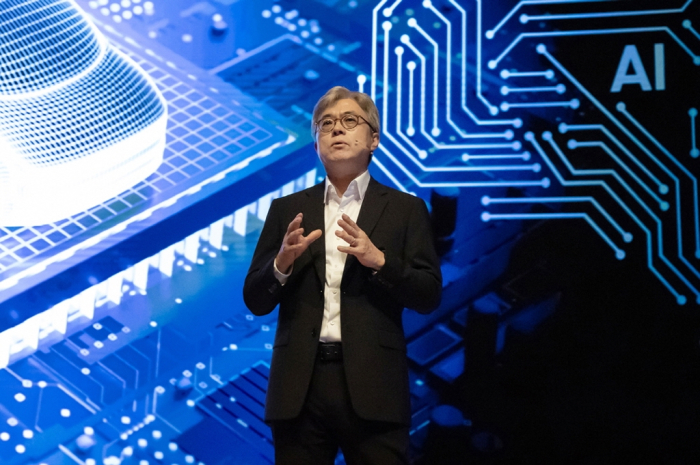Artificial intelligence
South Korea lags behind US, China in AI talent pool
Korea’s top business lobby urges Seoul to benchmark the US and China’s Al talent nurturing strategies
By Nov 20, 2023 (Gmt+09:00)
3
Min read
Most Read
LG Chem to sell water filter business to Glenwood PE for $692 million


Kyobo Life poised to buy Japan’s SBI Group-owned savings bank


KT&G eyes overseas M&A after rejecting activist fund's offer


StockX in merger talks with Naver’s online reseller Kream


Mirae Asset to be named Korea Post’s core real estate fund operator



South Korea lags far behind advanced countries in nurturing artificial intelligence (AI) talent due to the lack of proper skills development programs and early-age school education systems, a study commissioned by an industry lobby showed.
According to the Federation of Korean Industries (FKI), the nation’s leading business lobby, on Monday, Korea ranked 22nd out of 30 countries in the number of AI experts.
In a comparative research report commissioned by the FKI and drawn up by the Korea Research Institute for Vocational Education & Training (KRIVET), one of the key problems Korea faces in AI education is the lack of a centralized control tower in tech education.
In the US, the Department of Education is in charge of tech-related education, dubbed STEM, or science, technology, engineering and mathematics. China plans and establishes comprehensive strategies for AI education through its top administrative body, the State Council.
In Korea, however, AI-related policies are worked out and pushed by four different ministries, including the Ministry of Education and the Ministry of Science and ICT, according to Park Dong, a KRIVET senior researcher and the report's author.

Korea has 2,551 AI experts, or 0.5% of the total AI talent pool in the 30 countries surveyed, Park said, citing a research note by Element AI’s Global AI Talent Report 2020. The Montreal, Canada-based Element AI is an AI research firm owned by US software company ServiceNow Inc.
With that figure, Korea ranked 22nd. The US topped the list with 188,300 AI experts, accounting for 39.4% of the total, followed by India with 76,213 experts or 15.9% and the UK with 35,401 experts or 7.4%. China ranked fourth with 22,191 experts or 4.6%.
SHORTAGE OF AI TEACHERS
The KRIVET report also criticized the absence of systematic AI education in Korean elementary and secondary schools and the lack of qualified teachers.
The research institute noted that the US government reintroduced the Computer Science for All Act in 2021 to grant subsidies to local and state and other educational institutions to support their tech education.

The US spent more than $400 million in 2016 to secure qualified teachers, it said.
China made IT a required subject in schools in 2001, with longer teaching hours than Korea. It developed the world’s first AI textbook in 2018 and offers AI education throughout the lifespan, the report said.
In Korea, the report said, software technology is taught 17 hours a year during the senior elementary school years, and 34 hours per year in middle school. In high schools, software technology is an elective, meaning only those who select it study AI and software tech.
In addition, there are limits to improving the quality of tech education in Korea because AI-related teachers are trained based on demand, it said.
POLICY SUPPORT
The KRIVET report urged the Korean government to strengthen policy to lure AI talent overseas.

At the private-sector level, Korean companies need to offer attractive pay and create a good research environment to recruit and retain Korean and foreign AI experts, it said.
“It is urgent [for Korea] to address the qualitative mismatch as well as the shortage of AI talent,” said Choo Kwang-ho, head of the FKI’s economic research division. “At school levels, an upgrade in AI tech and a greater supply of teachers with deep AI knowledge are required.”
He called on the Korean government to benchmark the US and China’s Al talent nurturing strategies to develop Korea’s AI technology.
In 2019, the Korean government vowed to spend 260 billion won ($27.3 million) over five years to secure machine learning data. This is stingy compared with what the US and China are investing to win the AI race, industry officials said.
Industry data show Korea lacks investment in AI technology from both the government and the private sector.
According to the AI Index 2022 released by Stanford University’s Human-Centered Artificial Intelligence, investment in Korean startups amounted to $1.1 billion, a mere 2% of the $52.9 billion in US investment in startups.
Write to Jae-Fu Kim at hu@hankyung.com
In-Soo Nam edited this article.
More to Read
-
 Artificial intelligenceAI to replace high-paid, highly educated doctors, CPAs: BOK
Artificial intelligenceAI to replace high-paid, highly educated doctors, CPAs: BOKNov 16, 2023 (Gmt+09:00)
2 Min read -
 Artificial intelligenceSamsung unveils generative AI Gauss, to be integrated in Galaxy S24
Artificial intelligenceSamsung unveils generative AI Gauss, to be integrated in Galaxy S24Nov 08, 2023 (Gmt+09:00)
4 Min read -
 Tech, Media & TelecomNaver replaces Nvidia GPU with Intel CPU for its AI map app server
Tech, Media & TelecomNaver replaces Nvidia GPU with Intel CPU for its AI map app serverOct 30, 2023 (Gmt+09:00)
2 Min read -
 Artificial intelligenceKorea’s first ChatGPT-authored, AI-proofread book due this week
Artificial intelligenceKorea’s first ChatGPT-authored, AI-proofread book due this weekFeb 19, 2023 (Gmt+09:00)
3 Min read -
 Artificial intelligenceS.Korea behind in ChatGPT race with zero AI unicorns
Artificial intelligenceS.Korea behind in ChatGPT race with zero AI unicornsFeb 07, 2023 (Gmt+09:00)
3 Min read
Comment 0
LOG IN


